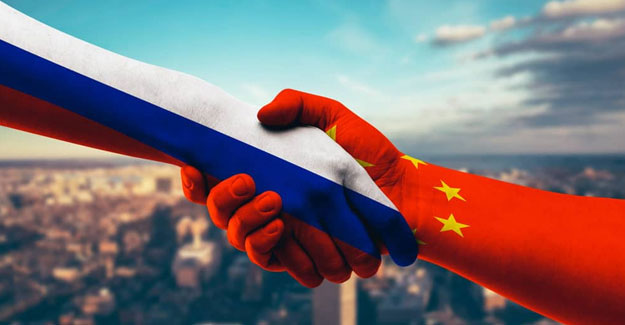
Xi Jinping Actively Promotes Trade & Investment With Russia As Chinese Policy
With the Chinese Communist Party Congress now over, a number of key steps were taken not just in terms of ushering in a new politburo but also emphasising China’s trade policies in addition to other matters. In fact, China’s economic development was labelled a ‘top priority’ for the new Five Year Plan. This will have a significant impact on global trade and certainly on Russia. China states both economic development and trade with Russia within that as key developments, the subject becomes of major concern to Russian businesses. So how does this manifest itself? Understanding China's Trade Policy China’s trade development is directly linked to its `Dual Circulation Strategy’ – already operational and the foundation for Chinese state economic development policy since 2020. What the ‘Dual Circulation Strategy’ means – and Russia is trying to adopt a similar scheme – is a specific call for the development of China’s domestic demand on one hand, while simultaneously developing conditions to facilitate foreign investment and boost production for exports on the other. Developing China's Domestic Demand The recent CPC Congress underlined this strategy, which is intended to add another 300 to 400 million people from China’s population to join its existing middle-class group, which currently stands at about 400 million today. That process is expected to be completed by 2035. This means that Beijing is actively encouraging Chinese consumer spending to an amount that will double the numbers of China’s middle-class within the coming 12 years. That means that China is encouraging imports of foreign products and services directly to Chinese nationals. There are many ways in which this is being activated, however one key indicator is within China’s annually issued ‘Negative List’ which details all sectors of China’s economy and to which extent foreign investors may participate. In fact, the 2022 Negative List was its most liberal yet with increasing areas of the Chinese economy open to foreign investment. The recent CPC specifically stated that this policy of opening up the economy to foreign participation would continue. These policies, supported by various trade frameworks to support them, illustrate there are increasing opportunities for Russian exporters to sell to Chinese consumers. While there remain issues for Russian companies opening bank accounts in China (and Hong Kong) there are opportunities to do so offshore and conduct the same China trade via subsidiaries in countries such as Dubai or India. Russian exporters should be looking at undertaking research into the Chinese consumer market. It is effectively doubling in terms of its middle-class capabilities within the next decade. Developing Chinese Exports Into Russia The second half of the ‘Dual Circulation Strategy’ is to boost Chinese exports. That means, among other countries, opportunities to sell to Russian consumers, a subject that is of great importance given many Western companies have now left the Russian consumer market. Rebalancing has been swift, as many Russians will have noted Western cosmetics brands for example, have exited the market to be replaced by Asian brands – which are increasingly finding favour – and regarded in many cases as superior. There are opportunities for Russian businesses here as well, and especially those in particular niches in possession of supply chains. An increase of Chinese exports to Russia provides a more knowledge-based service that can be sold, in Russia, to Chinese exporters and brands. Many Chinese companies are unfamiliar with the Russian market, and require market assistance, distribution and point of sale networks. They also require alternative solutions to practical issues such as relabeling, navigating consumer safeguards for consumables, translation and sales and marketing expertise. Typically, Chinese investors will wish to Joint Venture (JV) with a local Russian partner to provide these services, while the Chinese partner provides the goods.
Textile Excellence
If you wish to Subscribe to Textile Excellence Print Edition, kindly fill in the below form and we shall get back to you with details.












